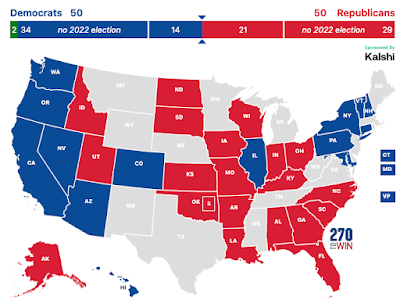Shut It Down!: Where does each side go from here?
As the government shutdown reaches the weekend, and Obama does his best Jed Bartlet impersonation, here’s a strategic
question for each side, and a prediction of how this ends:
For the Republicans:
What is the end-game?
When an organization enters a conflict such as this — be it a union in a strike,
company in a PR scandal, team in a playoff game, etc. it has two essential
needs. First, it needs a goal. Second, it needs a leader. A “goal” in the
context of a strike is the bargaining position a side had before the conflict.
In strikes, as mandated by law, unions can’t “move the goalposts” by increasing
their demands during the conflict. There can be compromise in the middle, but
the demands each side started with are the maximum they can extract. In this
show-down, if the GOP had maintained their position that it wanted to defund
Obamacare it would have a clear goal. Likewise, if their position had been to
delay implementation for a year they would have a demand they could stick to.
Instead the GOP conceded on a number of points leading to Monday night’s
shutdown, and now they’re just hoping the Democrats break first. But break on
what?
In large part this lack of clarity stems from the fact that
the GOP is speaking with many voices. Some say the rebellion is led by Senator
Ted Cruz. Others look to Speaker John Boehner. Democratic conspiracy theorists
blame the “extremist” Tea Partiers. In reality, each of these stakeholders
holds a portion of the leadership, but it almost seems like nobody desires the
official title of leader. John Kennedy said that “Victory has a thousand
fathers, but defeat is an orphan.” The fact that no clear leader is emerging
may be evidence the GOP sees this strategy as an unwanted baby.
For the Democrats:
How long can they keep
it together? Dave Weigel has a
piece in Slate about the “intransigence” of Democrats and their steadfast
refusal to compromise on Obamacare. This is a remarkable notion for two
reasons. First, in the post-WWII era, Democrats have typically been thought-of
as the big tent party: a loose coalition of the liberal elite, working poor,
unions, minorities, etc. Despite there being more symbolic diversity in their
ranks, they are united in this trying time. It could be because they have a
clear leader in the President, but that can be an issue, as detailed in the
next point.
Second, they’re the majority party by controlling two of three key institutions in this mess, and being in the majority usually leads to more divisions. Strategically, and message-wise, it should be easier to be the opposition party. The opposition only needs to criticize not hold a consensus, and two voices can be critical of a single target without agreeing with each other. So while it’s impressive Democrats are toeing the same line, there are reasons to think that may be a difficult standard to maintain.
So what happens next?
I asked Robert Costa, of the National Review (i.e. the reporter with the clearest understanding of the House GOP) during a Reddit AMA about what lay ahead for the GOP strategy, in light of the fact that they had conceded much of the negotiating ground before the shutdown. His response: “They're trying, in a sense, to wind down the CR showdown and then bring the big fiscal debate to the debt limit.” I tend to agree with Costa on this point. Because the GOP gave up its leverage before the shutdown, there are only two options.- First, one side folds. I think this is unlikely because of the Democratic unity, and the incentives for the GOP. What more do the Republicans really have to lose at this point? If people are upset about the shutdown they probably already blame Boehner et al.
- Second, this debate heads into the debt ceiling showdown and the stakes are raised considerably.
(**One final point, I would like to disagree with everyone saying the government shutdown is indicative
of the government being horribly broken, doomed and worse than it’s ever been.
Without arguing that Congress is functioning well, I think we underestimate how
typical crises like these are for the US Congress. There has been a government
shutdown more than once every 10 years since WWII, and in the 19th
Century the country went to war with itself to settle political differences, so
don’t tell me this is the worst it’s ever been.)


